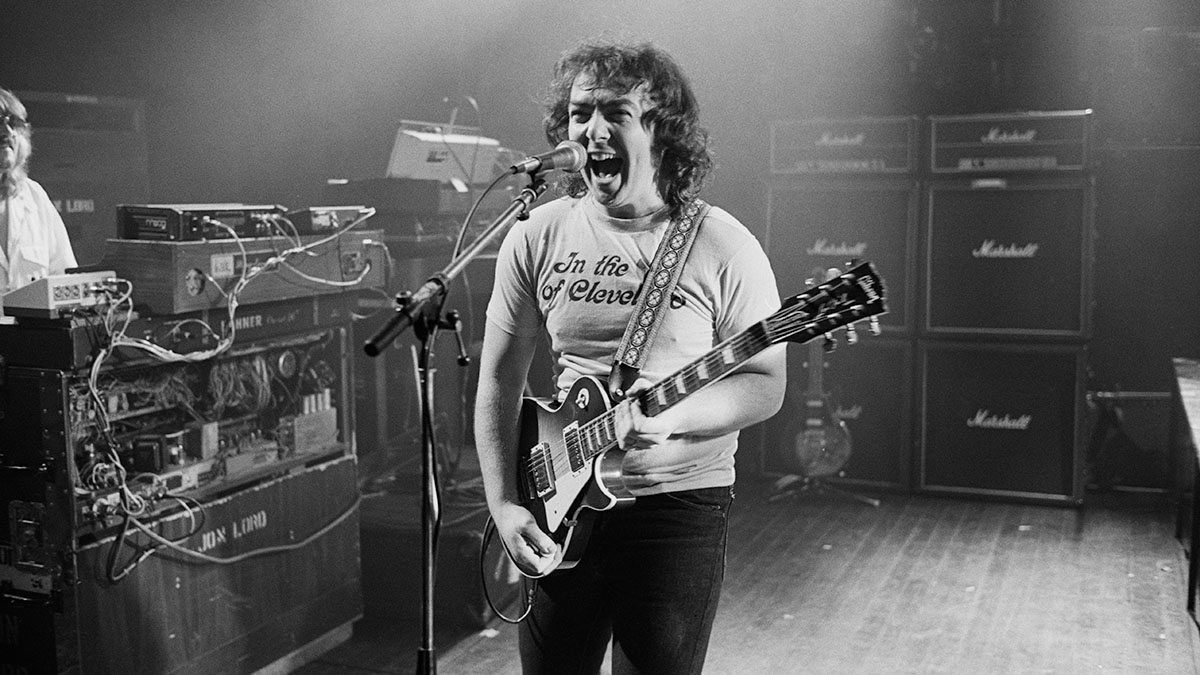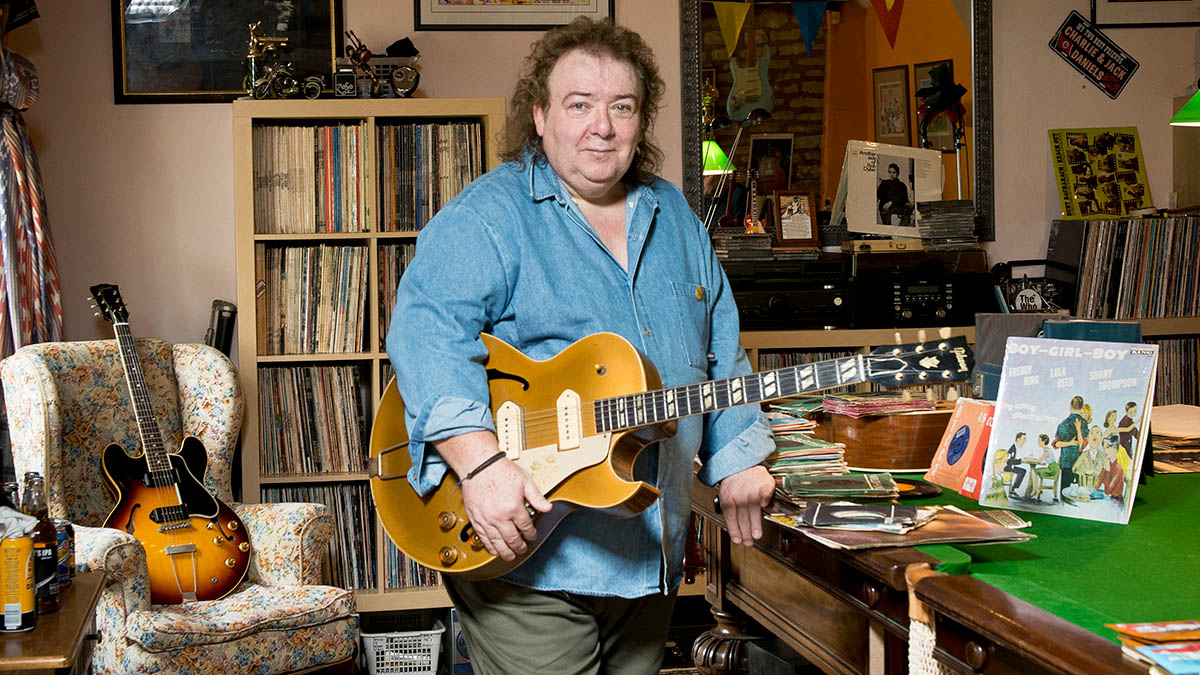Former Whitesnake guitarist Bernie Marsden has died, aged 72
Marsden was a giant of blues and rock guitar, with a formidable guitar collection and an even more formidable style

Want all the hottest music and gear news, reviews, deals, features and more, direct to your inbox? Sign up here.
You are now subscribed
Your newsletter sign-up was successful
Bernie Marsden, the legendary former Whitesnake guitarist and master of blues-rock guitar, has died, aged 72.
Marsden passed away on Thursday 24 August, with in the company of his wife, Fran, and daughters, Charlotte and Olivia. In a statement from the family, Marsden “never lost his passion for music, writing and recording new songs until the end”.
There are many things we could say about the guitar playing of Bernie Marsden. It was certainly influential enough for the University of Buckingham to award him an honorary master’s degree in 2015. Pictured in cap and gown he looked tickled by the award. But it was strange to see him without an electric guitar in his hand. It would be central to his story.
Like many players of his age, Marsden got turned onto the instrument by Hank Marvin of the Shadows. But it was Eric Clapton who really opened his eyes to its potential.
A post shared by Bernie Marsden 😎🎸❤️ (@berniemarsden)
A photo posted by on
Clapton was young enough that Marsden could see something of himself in him. George Harrison of the Beatles was another primary influence, and so too the late Peter Green. Both would become friends.
Marsden would travel down from Buckingham to London to see Fleetwood Mac play, helping them load in, a good deed rewarded by a pint from Green. They were birds of a feather, and it was inevitable they would remain close.
Marsden’s first band of note was Skinny Cat, formed when he was 17. They wouldn’t last but supporting Fleetwood Mac, Jeff Beck, Slade and Gary Moore give Marsden a real taste for it, and he would cast the net wider.
Want all the hottest music and gear news, reviews, deals, features and more, direct to your inbox? Sign up here.
UFO was his first big gig. The big time it was not. Speaking to Louder in 2020, he admitted it was an eye-opener to a young kid like him.
“I was naïve and green, and thought that joining a pro band and moving to London was going to be like the cover of a Beatles EP, with everyone jumping in the air and being happy. It turned out to be anything but,” said Marsden, who often had to travel to gigs on his own. It was not a happy camp.

It was, however, a move up the ladder. The next moves involved session playing with Mickie Most, playing with Cozy Powell’s Hammer, then Babe Ruth, before Paice Ashton Lord changed everything.
That was a great leap for Marsden, and perhaps also for Deep Purple fans reckoning with the stylistic evolution of this new project.
“Paice Ashton Lord turned out to be a flash in the pan, although it’s one of the best things I’ve ever done,” Marsden told Louder. He was right. He would record Malice In Wonderland with Paice Ashton Lord. As the curtain closed on Paice Ashton Lord, another opened.
Marsden got in at the ground floor with Whitesnake, joining guitarist Mike Moody and David Coverdale, and finally finding an outlet for his talent. In Coverdale, he knew he had someone he could work with, describing him as a “surrogate brother”.
He would record five studio albums with the band, co-writing the stone-cold classic Here I Go Again with Coverdale, and Fool For Your Loving, a track originally intended for BB King but one the record company had the good sense to make them use it for Whitesnake. That would become another evergreen hit.
He would release two solo albums during his time with the band. When Whitesnake came to an end, Marsden was only 30 but thought he was washed up. His friend Cozy Powell, who was best man at his wedding, helped talk him round. Marsden formed Alaska – originally, as “Bernie Marsden’s Alaska”, such was the style at the time – tracking two albums, Heart Of The Storm and The Pack.
One of Marsden’s most significant post-Whitesnake releases arrived in 1995, as he paid tribute to Peter Green on Green And Blues. Whitesnake was never out of sight in the rear-view mirror. In 2011, he got back on the stage with Coverdale and co at Sweden Rock Festival. They would not be strangers.
Latterly, Marsden had a portfolio career, scoring german TV show Frankie, collaborating with PRS and Gibson on a signature guitar, guesting on friends’ records and stages, recording the critically acclaimed solo album Shine in 2014.
His legendary 1959 Gibson Les Paul Standard ‘Burst of his, aka Beast, almost became like this extension of his personality and legacy. Little wonder there was outcry when the Beast was considered for sale earlier in June. Over the years he had lent the Beast to select friends – Joe Bonamassa was one such safe pair of hands. By popular appeal, Marsden decided to keep it. It was fitting that the Beast stayed with him to the end.
Jonathan Horsley has been writing about guitars and guitar culture since 2005, playing them since 1990, and regularly contributes to MusicRadar, Total Guitar and Guitar World. He uses Jazz III nylon picks, 10s during the week, 9s at the weekend, and shamefully still struggles with rhythm figure one of Van Halen’s Panama.
